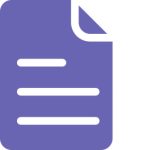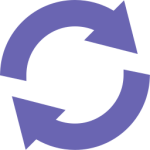Who are our instructors and how are they selected?DevOps certification live online training is designed to help you become a DevOps practitioner and apply the latest in DevOps methodology to automate your software development lifecycle right out of the class. You will master continuous integration deployment, delivery and monitoring using DevOps tools such as Git, Docker, and Jenkins, Ansible and Rundeck in a practical, hands-on and interactive approach.
The DevOps training course focuses heavily on the use of Docker containers, a technology that is revolutionizing the way apps are deployed in the cloud today and is a critical skill set to master in the cloud age.
After completing the DevOps training course you will achieve hands on expertise in various aspects of the DevOps delivery model.
The practical learning outcomes of this Devops training course are:
An understanding of DevOps and the modern DevOps toolsets
The ability to automate all aspects of a modern code delivery and deployment pipeline using:

Instructor-led Live Sessions
Instructor led live online classroom training delivered through best in the class technology available. Total duration of the training is 30 hours i.e. 12 sessions of 2.5 hours each for 6 weekends

Real-life Case Studies
3 projects using real life data during the training to cement the knowledge and to provide intensive hands-on.

Assignments
Assignments post every weekend to further practice and to get more hands-on practicals.

Lifetime Access
Life time access to recorded training sessions, training presentations, exercises and quizzes for future reference.

24 x 7 Expert Support
Life time access to our our experts to resolve your technical queries over email and phone.

Certification
Earn MCAL Global certification for “Selenium 3.0 Certification Training” based on your performance during project work and training.
DevOps career opportunities are thriving worldwide. DevOps was featured as one of the 11 best jobs in America for 2017, according to CBS News, and data from Payscale.com shows that DevOps Managers earn as much as $122,234 per year, with DevOps engineers making as much as $151,461. DevOps jobs are the third-highest tech role ranked by employer demand on Indeed.com but have the second-highest talent deficit.
Labs will be conducted on a cloud platform that is completely created by participants during the first class of the course. The platform used is the Azure.
All of our highly qualified trainers are DevOps certified with at least 15 years of experience in training and working in the IT, Agile, ITSM and/or DevOps domains. Each of them has gone through a rigorous selection process that includes profile screening, technical evaluation, and a training demo before they are certified to train for us. We also ensure that only those trainers with a high alumni rating remain on our faculty.
DevOps is a new term emerging from the collision of two major related trends. The first was also called “agile infrastructure” or “agile operations”; it sprang from applying Agile and Lean approaches to operations work. The second is a much expanded understanding of the value of collaboration between development and operations staff throughout all stages of the development lifecycle when creating and operating a service, and how important operations has become in our increasingly service-oriented world
Yes, any configuration works unless it is compatible to access internet.
We will be covering following tools :